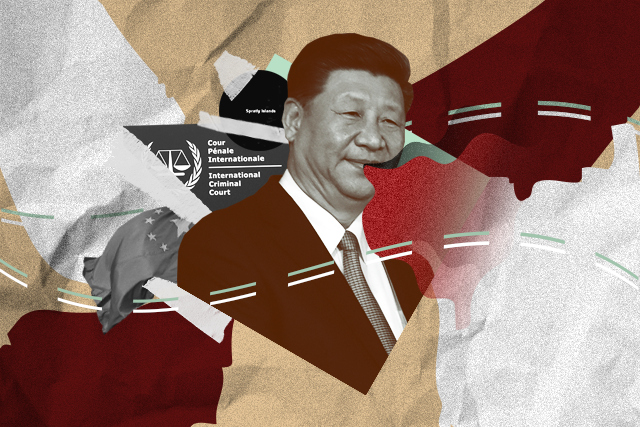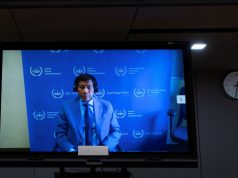
Former Foreign Affairs Secretary Albert del Rosario and former Ombudsman Conchita Carpio Morales filed a communication accusing Chinese President Xi Jinping of crimes before an international tribunal days before the country’s withdrawal as a party at the court took effect.
This was different venue from the Permanent Court of Arbitration where the landmark ruling in favor of the Philippines invalidating China’s nine-dash line claim was made in 2016.
Why does it matter?
The complaint, technically called a communication, submitted to Fatou Bensouda, prosecutor at the International Criminal Court or ICC, was to hold the Chinese president accountable for crimes against Filipino fishermen and the surrounding environment within the Philippine territory of the South China Sea.
“The situation presented is both unique and relevant in that it presents one of the most massive, near permanent and devastating destruction of the environment in humanity’s history, which has not only adversely affected and injured myriad groups of vulnerable fishermen, but present and future generations of people across nations,” the communication read.
This case is not related to President Rodrigo Duterte’s alleged atrocities of concern to the international community filed at the same court. The ICC has yet to start its investigation on the filing.
What is the ICC?
The ICC was established on July 17, 1998 after 120 states, including the Philippines, adopted a statute in Rome or the Rome Statute of the ICC.
It serves as the last resort to prosecute serious crimes such as war crimes, genocide and crimes against humanity in the territories of the member-states or by their nationals after the entry into force on July 1, 2002.
According to the Rome Statute, the ICC cannot replace national courts. It will only intervene “where a State is unable or unwilling genuinely to carry out the investigation and prosecute the perpetrators.”
The ICC is different from other international tribunals such as the Permanent Court of Arbitration, the International Court of Justice and other courts within the framework of the United Nations.
It is a permanent independent body. This means that it does need the special mandate from the United Nations to try individuals for crimes under its jurisdiction.
Does ICC have jurisdiction?
The communication was submitted to Bensouda on March 13. The country’s withdrawal from the ICC took effect on March 17.
Even if China is not a state party to the Rome Statute, the court may still exercise its jurisdiction given that the crime occurred in the territory of the Philippines, which was still a state party based on the timeline.
“The Court may exercise its jurisdiction in situations where the alleged perpetrator is a national of a State Party or where the crime was committed in the territory of a State Party. Also, a State not party to the Statute may decide to accept the jurisdiction of the ICC,” the ICC document said.
Crimes that fall within the Court’s jurisdiction are genocide, crimes against humanity, war crimes and crimes of aggression.
It’s not certain which of these crimes the alleged atrocities of the Chinese officials fall under.
“It is only the ICC that can exact accountability on behalf of Filipinos and the international community, respecting the rule of law,” the communication read.









